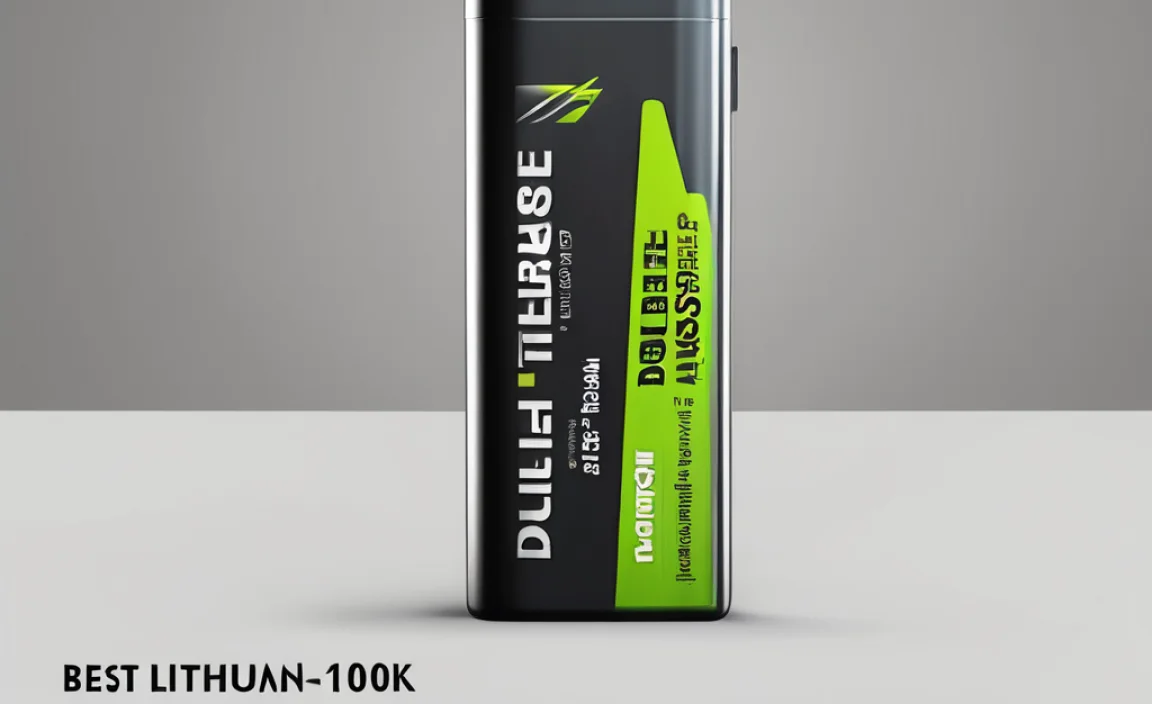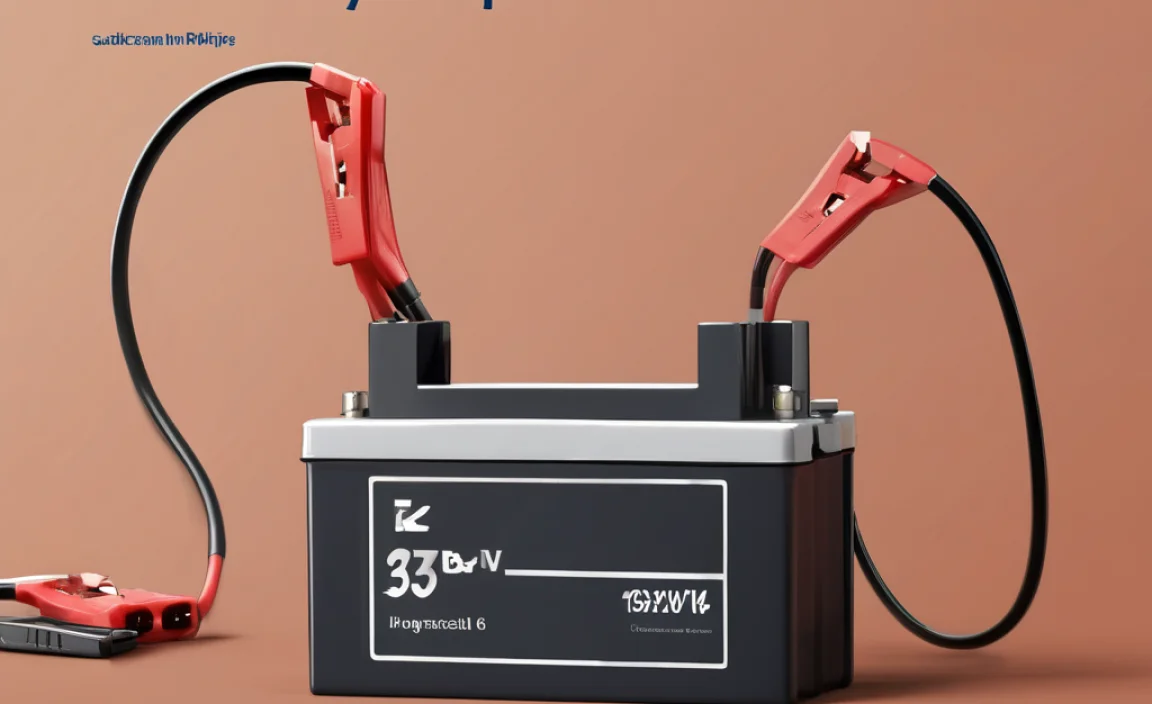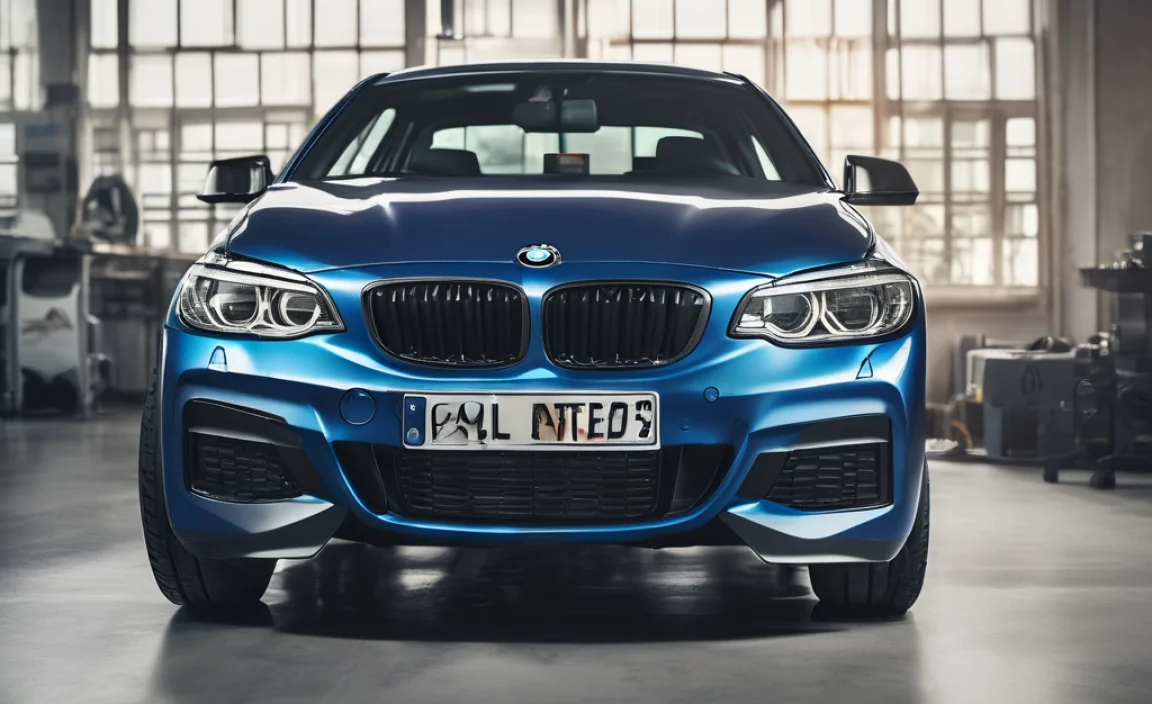To travel to Morocco, you will need a Type C or Type D power adapter and potentially a voltage converter. Morocco uses 220–240V voltage and primarily Type C (Europlug) sockets, though some older buildings might have Type D. Always check your device’s voltage compatibility.
Planning a trip to Morocco is exciting, and making sure you can keep your essential gadgets charged shouldn’t be a headache. It’s a common worry for travelers: “Will my phone charge? Will my laptop work?” Different countries use different types of plugs and electrical currents, and Morocco is no exception. This guide is here to take the guesswork out of finding the right power adapter so you can focus on enjoying the vibrant souks and stunning landscapes. We’ll break down exactly what you need, why you need it, and how to avoid any electrical mishaps. Get ready to power up your Moroccan adventure with confidence!
Understanding Morocco’s Electrical System
To figure out what kind of adapter you need for Morocco, we first need to look at two key things: the voltage and the plug types used there. Think of voltage like the “push” that electricity gets to travel through the wires. If the voltage from the wall socket is too high or too low for your device, it can cause damage.
Voltage in Morocco
Morocco operates on a standard voltage of 220–240V. This is quite common in many parts of Europe, Africa, and Asia. However, the voltage in North America (the US and Canada) is typically 120V. This difference is crucial because plugging a device designed for 120V into a 240V outlet without the right protection can fry its circuits.
Why this matters for you: Most modern electronics, like smartphones, laptops, and camera chargers, are designed to handle a range of voltages. You’ll often see labels on their power bricks that say “INPUT: 100-240V.” If your device has this label, it’s considered dual voltage and will work in Morocco without a voltage converter. You’ll only need a physical adapter to change the plug shape.
Devices that are single voltage (meaning they only accept a specific voltage) will need a voltage converter. These are usually older appliances like hair dryers, curling irons, or some electric shavers that weren’t designed with global travel in mind. It’s always best to check the input label on your electronic device.
Morocco’s Plug Types
When you look at the electrical outlets in Morocco, you’ll commonly see two types of plugs: Type C and, less frequently, Type D.
Type C (The Europlug)
This is the most common plug type you’ll encounter in Morocco and across much of continental Europe. It has two round pins. It’s quite slim and doesn’t have a ground connection, making it suitable for low-power devices like phone chargers, camera chargers, and laptop power bricks.
Imagine two simple metal rods sticking out of your plug – that’s essentially a Type C. The good news is that many countries use this plug type, so if you’ve traveled to Europe before, you’ll likely recognize it.
Type D (Less Common)
You might occasionally see Type D outlets, especially in older buildings or more traditional areas. This plug has three large round pins arranged in a triangle. It’s a grounded plug, used for higher-power appliances. However, for most modern travel electronics, you won’t need to worry about this type.
Key takeaway: Prioritize getting an adapter that accommodates Type C plugs, as this will cover the vast majority of your needs.
What Adapter Do I Need for Morocco? The Solution
Now that we understand the electrical landscape of Morocco, let’s get straight to the solution: the power adapter you’ll need.
The Primary Adapter: Type C (Europlug)
For the vast majority of travelers and devices, the adapter you need is one that converts your home country’s plug into a Type C (Europlug). This is because Type C sockets are the standard in Morocco.
What to look for:
- A universal travel adapter that includes a Type C outlet setting is an excellent investment.
- Alternatively, a simple Type C adapter, often sold as a “European adapter,” will work perfectly.
Most smartphones, tablets, laptops, and camera chargers use Type C plugs. If your device’s plug has two thin, round pins, it will fit directly into a Type C socket. The adapter’s job is just to change the physical shape of your home plug (like a US-style flat pin or a UK-style rectangular pin) to the round pins of the Type C.
Considering a Voltage Converter
As mentioned earlier, voltage converters are only necessary if your electronic device is not dual voltage. This means your device can only handle a specific voltage (like 120V) and cannot automatically adjust to Morocco’s 220–240V.
Do you need one? Check your device label!
- If it says “INPUT: 100-240V”: You DO NOT need a voltage converter. Just an adapter for the plug type.
- If it says “INPUT: 120V” or specifically lists only one voltage: You likely NEED a voltage converter.
Types of Voltage Converters:
- Heavy-duty converters: These are designed for high-power items like hairdryers or irons. They are bulkier and more expensive.
- Resistors/Plug Adapters with surge protection: These are often simpler and cheaper. They can work for lower-power electronics but are not suitable for high-wattage devices.
Important Safety Note: Using a converter designed for low-wattage devices (like phone chargers) on high-wattage appliances (like full-sized hair dryers) can damage both the appliance and the converter, and even be a fire hazard.
Recommendation: For most modern travel, it’s often easier and safer to purchase dual-voltage versions of appliances you absolutely need (like travel hair dryers) rather than relying on converters. Alternatively, buy a simple, inexpensive adapter that fits Type C sockets and ensure all your electronics are dual voltage.
What if I Encounter a Type D Socket?
While rare for travel electronics, if you happen to find a Type D socket and your plug doesn’t fit, you have a couple of options:
- Universal Travel Adapter: These are designed with multiple plug types and often include a Type D setting or the necessary configuration to adapt.
- Look for a Type C Socket: Most buildings, especially newer ones or hotels, will have Type C sockets available somewhere.
Essential Items to Pack for Morocco
Let’s make a clear checklist of what you should pack to ensure you stay powered up.
The Must-Have Adapter:
- A Type C plug adapter: This is non-negotiable for most travelers. Whether it’s a single adapter or part of a universal kit, make sure it lets you plug into a Type C socket.
The Optional Voltage Converter:
- ONLY if you have single-voltage devices: Check the labels on your hair dryer, straightener, or other high-power gadgets. If they aren’t dual voltage, you’ll need a converter appropriate for their wattage.
Other Helpful Power Accessories:
- Portable Power Bank: These are lifesavers for charging your phone or tablet on the go, especially during long travel days or when you’re out exploring and can’t find an outlet. Ensure it’s fully charged before you leave!
- Multi-port USB Charger: If you have several USB devices (phone, tablet, camera), a charger with multiple USB ports can save space and outlet slots. Many are dual voltage, so just check that.
- Travel Surge Protector: While not strictly an adapter, a travel surge protector can be useful if you have multiple devices with limited outlets. Ensure it’s designed for international use and the correct voltage.
Adapter vs. Converter: What’s the Real Difference?
It’s easy to get these two confused, so let’s break them down simply.
| Feature | Plug Adapter | Voltage Converter |
|---|---|---|
| Primary Function | Changes the shape of the plug pins to fit foreign sockets. | Changes the electrical voltage from one level to another. |
| When You Need It | When your plug doesn’t fit the socket type (e.g., US plug in a European socket). | When your device’s voltage rating doesn’t match the country’s voltage (e.g., 120V device in a 240V country). |
| Typical Use | Smartphones, laptops, cameras, power banks. | Older hair dryers, curling irons, non-dual voltage electronics. |
| Morocco Specifics | ALWAYS needed for Type C/D sockets. | ONLY needed if device is NOT dual voltage (100-240V). |
How to Safely Use Your Power Adapter in Morocco
Safety first is always the best approach when dealing with electricity, especially in a foreign country. Here’s how to use your adapter correctly and avoid any issues.
Step-by-Step Usage Guide:
- Check Your Devices: Before you even pack, look at the power label on each electronic device. Confirm if it’s dual voltage (100-240V) or single voltage.
- Select the Right Gear: Based on your device check, decide if you solely need a plug adapter, or if you also need a voltage converter.
- Connect Your Device Plug: If using a combined adapter/converter unit, first plug your device’s original power cord into the adapter. If you’re using a separate converter, plug your device into the converter, and then plug the converter into the adapter.
- Insert Adapter into Wall Socket: Firmly plug your chosen adapter (or adapter-converter combo) into the Moroccan wall socket. Ensure it’s snug and not loose.
- Power On and Charge: Once plugged in, your device should start charging or powering up. Always monitor new devices or converters for any unusual heat or smells, especially during the first few minutes of use.
- Unplug When Done: For safety, and to conserve energy, unplug your adapter when you’re finished charging.
Safety Tips to Remember:
- Never force plugs: If a plug doesn’t fit easily into an outlet or adapter, don’t force it. You might be using the wrong adapter or the outlet may be damaged.
- Inspect your gear: Before traveling, check your adapters and converters for any frayed wires, cracks, or damage. Don’t use faulty equipment.
- Avoid water: Keep all electrical equipment, including adapters and outlets, dry. Morocco can be humid in some areas, so be mindful of bathrooms and kitchens.
- Don’t overload: Avoid plugging too many high-power devices into a single socket or adapter, especially if using a converter. This can trip breakers or damage equipment.
- Consult device manuals: When in doubt, always refer to the user manual for your specific electronic device or appliance.
- Purchase from reputable sources: Buy your travel adapters and converters from trusted retailers to ensure they meet safety standards. Standards organizations like the International Electrotechnical Commission (IEC) set global benchmarks for electrical safety.
Popular Travel Adapter Types for Morocco
When you go shopping for adapters, you’ll see a few common types that are suitable for Morocco. Knowing these will help you pick the best one for your needs.
Universal Travel Adapters:
These are often the most convenient choice for international travelers. They have a system of adjustable prongs that can be slid or rotated to fit the plug requirements of multiple countries.
- Pros: One adapter works in many countries, saving space and money if you travel frequently.
- Cons: Can be slightly bulkier than single-country adapters. Some cheaper models might feel less robust.
- Morocco Inclusion: Most universal adapters will have a setting for Type C (Europlug), making them perfect for Morocco.
Type C Adapters (Europlug Adapters):
These are specific adapters designed to match the Type C socket found in Morocco. They typically consist of your home country’s plug on one end and the two round Type C pins on the other.
- Pros: Simple, compact, and very affordable.
- Cons: Only useful for countries that use Type C plugs.
- Morocco Suitability: Excellent for Morocco, as this is the primary socket type.
Multi-Port USB Adapters:
These adapters not only allow you to plug in your device but also feature several USB ports, allowing you to charge phones, tablets, and other USB-powered gadgets directly without needing your device’s original charger brick.
- Pros: Consolidates multiple chargers into one unit, very convenient for tech-heavy travelers.
- Cons: Ensure the adapter itself is rated for 220-240V and has the appropriate plug fitting for Morocco.
- Morocco Suitability: Very handy, provided it has the Type C plug configuration.
Table: Adapter Types and Their Features
| Adapter Type | Best For | Key Features | Morocco Compatibility |
|---|---|---|---|
| Universal Travel Adapter | Frequent travelers to multiple countries. | Adjustable pins for various socket types, often includes USB ports. | High (designed for Type C and others). |
| Type C (Europlug) Adapter | Travelers whose devices have Type C plugs or who only need to charge in Type C countries. | Simple, compact, two round pins. | Essential for Morocco. |
| Multi-Port USB Adapter | Travelers with multiple USB devices (phones, tablets). | Built-in USB ports, consolidates chargers. | Very good, if it has Type C fitting. |
Where to Buy Your Moroccan Power Adapter
Getting the right adapter before you leave is the smartest move. You don’t want to be searching for one upon arrival at a busy airport or in an unfamiliar city.
Before You Leave Home:
- Online Retailers: Websites like Amazon, Best Buy, and specialized travel stores offer a wide selection of universal adapters, Type C adapters, and travel accessories. You can read reviews and compare options easily.
- Electronic Stores: Most major electronics retailers will have a travel section with international adapters.
- Airport Shops: While convenient, airport shops are often the most expensive option. Use them as a last resort.



